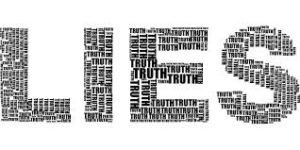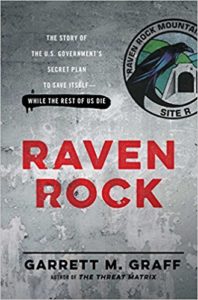Reality check.
All the World is full of suffering. It is also full of overcoming. -Helen Keller
Much of our anxiety and inner turmoil comes from living in a global culture whose values drive us from the essence of what matters. -Mark Nepo
As spiritual beings, we have within us the inherent power to rise above any circumstance. -Rev. Jane Beach
NPR
David Folkenflick
‘When the White House Can’t Be Believed’
This essay isn’t about spin, or splitting hairs, or differing opinions.
This involves a reality check about our expectations of the people who act in our name. About credibility at the highest levels of our government. About people whose words are heard abroad as speaking for our nation. About the public and the media that try, however imperfectly, to serve it.
[…]
You could call what she [Homeland Security Secretary Kirstjen Nielsen] said a deception, an evasion or a technical nicety. NPR will not call what Nielsen said a lie because it cannot gauge her intent.
I report about the media for NPR and in so doing, I periodically cover NPR and its policies. I don’t speak for the network. I would say the word “lie” fits here.
[…]
But what you call it almost doesn’t matter.
More important is that the media and the public register a fundamental fact: Top people speaking for the United States aren’t telling us the truth — starting with the president.
https://www.npr.org/2018/06/20/621876079/when-the-white-house-cant-be-believed
Columbia Journalism Review
Advocates are becoming journalists. Is that a good thing?
As the media landscape continues to fragment and many outlets struggle to afford more ambitious reporting projects, non-governmental organizations and advocacy groups like the ACLU and Human Rights Watch are increasingly taking on the role of reporter—breaking stories and in some cases even helping to change policy. But even those leading the new NGO-as-muckraker efforts acknowledge that they’re no replacement for traditional news organizations.
The line between advocacy groups and media organizations has been blurring for some time.
Journalism professor Dan Gillmor wrote a decade ago about the work the ACLU was doing around Guantanamo Bay, and the reporting Human Rights Watch did on issues such as domestic workers in Saudi Arabia. A number of academics have also written about the increasing overlap between NGOs and journalism.
“As traditional journalism companies are firing reporters and editors right and left, the almost-journalist organizations have both the deep pockets and staffing to fill in some of the gaps,” Gillmor wrote. He also encouraged NGOs to concentrate on applying journalistic principles such as fact-checking and transparency.
Of course, traditional media organizations often get accused of distorting the news in similar ways—of selectively including certain facts or quoting certain individuals—because those facts or views fit a certain worldview. In some cases it’s done in order to generate traffic and advertising revenue, but there can also be ideological elements at work (Fox News, or at least the version of it that exists in primetime, springs to mind).
In the end, the world of journalism and the world as a whole are probably better off now that there are activist organizations that are trying to use the tools of modern media to tell stories. The more sources of information there are, especially from remote or developing nations, the better. In some ways, that’s one of the biggest benefits of a democratized media environment—anyone anywhere can become a news source, and that’s fundamentally a good thing, even if some take advantage of it for their own purposes.
d: At this moment in our democracy, we do indeed need moral thinkers serving as activists; both-sides journalism, and for-profit media prior and post the 2016 presidential primary, have delivered us to this point of massive deception and gaslit lies. Perhaps only journalists as activists, and ‘democratized media’ will deliver us from the deception and recurrent lies being generated from this nation’s highest offices.
Society of Professional Journalists
spj.org
Minimize Harm
Journalists should:
- Take responsibility for the accuracy of their work.
- Balance the public’s need for information against potential harm or discomfort.
- Show compassion for those who may be affected by news coverage.
The Intercept
All mass crimes in history start with a justification, a necessity rationalization, a sick form of nationalism and racism.
Administration of Hate: The Snatching and Caging of Immigrant Children. It is Happening Here.
This week on Intercepted: The Intercept’s Ryan Devereaux talks about his recent reporting in the border state of Arizona and paints a harrowing picture of the human toll of family separations by ICE. Alice Speri lays out her investigation of sexual abuse by ICE officers and contractors in immigration detention centers. Sohail Daulatzai discusses his new book, “With Stones in Our Hands: Writings on Muslims, Racism, and Empire,” and explains why the film “The Battle of Algiers” is still relevant more than 50 years after its release. The legendary resistance singer Barbara Dane shares stories from her 91 years on earth fighting militarism, racism, and economic injustice. Plus, Homeland Security Secretary Kirstjen Nielsen competes on Jeopardy! and we hear a cover of “The Partisan” from composers and musicians Leo Heiblum of Mexico and Tenzin Choegyal of Tibet.
NPR
James Doubek
White Civil Rights Rally Approved for D.C. in August
The National Park Service has approved an initial request for organizers to hold a second “Unite the Right” rally, this time across the street from the White House in August — one year after white supremacists gathered in Charlottesville, Va.
The park service has given initial approval to an application from Jason Kessler to hold a “white civil rights rally” on Aug. 11 and 12, as first reported by WUSA9. Kessler, along with white supremacist Richard Spencer and others, organized the 2017 rally, during which a woman was killed. The park service has not yet issued a permit for the event.
https://www.npr.org/2018/06/21/622144455/white-civil-rights-rally-approved-for-d-c-in-august
Think Progress
Meet the Favorite Philosophers of Young White Supremacists
A new book explores how philosophers like Nietzsche and Heidegger have inspired a new generation of fascists.
Casey Michel
As Donald Trump basked in his presidential election victory in 2016, white supremacist Richard Spencer unleashed a round of Nazi-inspired praise for Trump’s victory — sentiments echoed by Alexander Dugin, a Russian neo-fascist whose writings reached a broader-English-speaking audience thanks to Spencer and his wife, Nina Kouprianova.
These three, writes University of Toronto political science professor Ronald Beiner, all trace their fascistic views back to a pair of German philosophers: Friedrich Nietzsche and Martin Heidegger, both of whom played outsized roles in either inspiring
As Beiner writes in Dangerous Minds: Nietzsche, Heidegger, and the Return of the Far Right, the recent resurgence of the far-right and white supremacy didn’t occur in any kind of philosophical vacuum. Rather, it’s rooted in a long lineage of fascists who have leaned on Nietzsche and Heidegger to excuse and expand their own racism, anti-Semitism, and personal quests for power.
[…]
Decades later, the two philosophers have gained newfound prominence thanks to the growing impact of neo-fascists and white supremacists on both sides of the Atlantic. ThinkProgress spoke with Beiner about the effect Nietzsche and Heidegger have had, and what may come next for the young white supremacists who have found their philosophical heroes in a pair of German thinkers.
[…]
Nietzsche and Heidegger despise the Reformation, the Enlightenment, the French Revolution — they resolutely, deliberately, and bitterly reject that legacy, that inheritance of the modern West. I’d say they violently reject [them]. Why is that? Take the French Revolution. Really what it stands for is the idea that people should not be locked into pre-dictated roles in life, scripts they’re meant to live out. The idea is to give individuals space to map out their own ideas of life, to live freely. Well, Nietzsche totally rejects that.
[…]
The project is: destroy liberalism. Destroy the moral and political horizons of modernity. Destroy everything from the ground up. And if it takes a nuclear explosion and just starting all over again, they’re happy with it.
d: Then, if we really want to sober up, we read this:
In Raven Rock, Garrett Graff sheds light on the inner workings of the 650-acre compound (called Raven Rock) just miles from Camp David, as well as dozens of other bunkers the government built its top leaders during the Cold War, from the White House lawn to Cheyenne Mountain in Colorado to Palm Beach, Florida, and the secret plans that would have kicked in after a Cold War nuclear attack to round up foreigners and dissidents, and nationalize industries.
Equal parts a presidential, military, and political history, Raven Rock tracks the evolution of the government’s plans and the threats of global war from the dawn of the nuclear era through the present day. Relying upon thousands of pages of once-classified documents, as well as original interviews and visits to former and current COG facilities, Graff brings readers through the back channels of government to understand exactly what is at stake if our nation is attacked, and how we’re prepared to respond if it is. [Amazon]
—Walter Isaacson, author of Steve Jobs and Einstein:
Garrett Graff has given us a colorful and frightening account of the American government’s plans for doomsday, and the secret bunkers where official could go to save themselves. These early plans still have their counterparts today, and they reveal a lot about how warfighting doctrine evolved. Read it and be fascinated—and a little scared.”
Fresh Air’s Terry Gross interviewed Graff in 2017, and re-aired her interview on Friday, June 22nd. The book was just released in paperback.
Graff is a former editor of Washingtonian magazine and Politico Magazine. He also is a contributing writer to Wired magazine. Terry interviewed him last year when his book was published. It’s now out in paperback.
[excerpt]
Raven Rock is this massive, hollowed-out mountain. I mean, it’s a free-standing city inside, you know, with individual buildings – three-story buildings built inside of this mountain. And it has everything that a small city would. I mean, there’s a fire department there. There’s a police department, medical facilities, dining halls. The dining facility serves four meals a day. It’s a 24-hour facility. And it has been – it was sort of mothballed to a certain extent during the 1990s as the Cold War ended and then was restarted in a hurry after 9/11 and has been pretty dramatically expanded over the last 15 years and, you know, today could hold as many as 5,000 people in the event of an emergency.
GROSS: So you have these underground bunkers the size of cities in case of nuclear attack to protect members of government and keep the government going. You say that these places are staffed 24 hours a day, 365 days a year.
GRAFF: Yes. They are staffed 24 hours a day, 365 days a year. And it’s not just the bunkers. Right as we are sitting here talking today, there is a presidential doomsday plane, these converted 747s that are known as the Nightwatch planes. There are four of them. They’ve been in existence for the last quarter century. And one of them is sitting on a runway in Omaha, Neb., at Offutt Air Force Base right now. Its engines are on. It’s fully staffed with everyone that you would need to lead a nuclear war. And it’s ready to launch in a 15-minute alert in the event of an emergency and rendezvous with the president, wherever he may end up being, and evacuate him.
d: And then we remember who occupies the Oval Office.
#



Leave a Reply